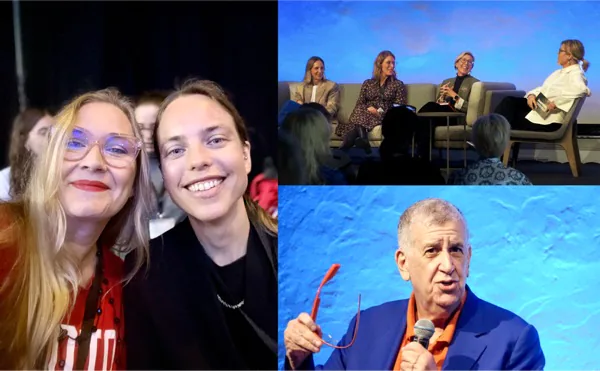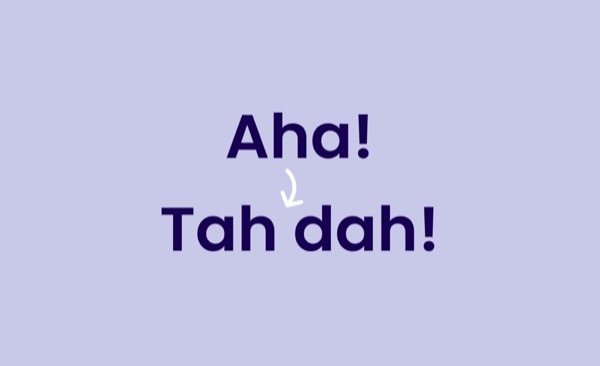7 Core Skills to Ignite Team Magic
Emotional and social intelligence are key for success when you work in a team. According to the TESI model (Team Emotional and Social Intelligence) there are seven essential soft skills – identity, motivation, emotional awareness, communication, stress tolerance, conflict resolution and positive mood. These all contribute to the effectiveness, productivity, emotional and social wellbeing of a team.
1. Identity
A team with a strong identity demonstrates the sense of belonging. They have a desire to work together and there is clarity around each member’s role. Groups with strong team identity have high degrees of loyalty. Understanding individual character strengths (explained in detail on the Tilt 365 blog) and knowing how each unique personality fits into the team to make it whole, can go a long way in establishing a clear and strong team identity.
2. Motivation
A high level of motivation corresponds to the energy and responsibility levels in a team. Whether competition is working for or against the team also affects motivation. Having a motivated team requires knowing, and meeting, desires. For example, setting stretch goals, reinforcing success and being persistent.
3. Emotional awareness
Noticing, understanding and respecting colleagues’ feelings indicates a team’s emotional awareness. It is a critical factor in motivation, productivity and collaboration. And it’s central to the success of every team.
4. Communication
We know that good communication is essential for a group of people working together. It provides guidance on how well each of the team member acts. Particularly when discussing sensitive topics, encouraging listening and participation.
5. Stress tolerance
A team with good stress tolerance knows how well it’s doing in managing pressures. These include workload, time constraints and a good work-life balance.
6. Conflict resolution
A team’s ability to deal with conflict means examining how they process disagreement. Is the team able to deal with adversity and enhance its functioning? Or does it get caught up in the conflict? Good conflict resolution is essential for productivity and creativity.
7. Positive mood
A team with a positive mood is built on foundations of encouragement and humour, as well as expectations of success. Positive mood is a major factor in a team’s flexibility and resilience, and it’s the heart of a can-do attitude. It influences how energised the team’s attitude is.

Team work makes the dream work
The Magic of Teams is one of Abracademy’s most popular workshops. Why? Because as an old sport saying goes: a champion team will defeat a team of champions.
Modern business culture places more value on a single talented individual than on a team with no standout star. As much as we value the ideals of teamwork, the notion of the prima donna remains popular – the team member who stands out and succeeds without help from anyone.
However, research in various sectors indicates that a collaborative team will always outperform solo stars.
- “Tired crews who have flown together in the past make fewer errors than fresh crews who have never flown together” (NASA)
- “The performance of heart specialists improved with practice and experience, but only at the hospitals where they did most of their work. When the same surgeons worked at different hospitals, their success rates returned to baseline” (Huckman and Pisano, Harvard Business School)
- “Team familiarity was a better predictor of project success and on-time delivery than the total experience of individual team members” (Huckman, Staats & Upton)
In the first two examples in particular, it’s clear that the best choice would be the strong team! Otherwise you better hope for some magic…
The academic field of Positive Psychology has always emphasised the personal benefits of good social relationships. Individuals grow and develop over time. As does a team. So, how much business sense do good connections mean? For a start, they have the potential to improve organisational performance at the highest levels.

How teams develop
When a new team comes together, you can’t expect it to perform well immediately. It takes time and members will go through various stages. They need to shift from being a collection of strangers to a united team with common goals.
Let’s look at Bruce Tuckman’s Forming, Storming, Norming and Performing model. It describes the necessary stages for a team to grow. Only once these have been successfully completed, can the team face challenges, tackle problems, find solutions, plan work and deliver results successfully. Together.
Forming
In this first stage, energy and enthusiasm are generally high. Team members play nice and avoid conflict. But a common challenge in this phase is information gathering. This happens as the team strives to understand its objectives, roles and responsibilities.
Storming
As the team settles, individuals begin to test the boundaries of the group. As a result, a period of heightened intragroup conflict emerges, which can lead to a decline in effectiveness. This can be due to personalities, working styles, lack of agreement or understanding of goals.
Norming
Once teams can deal with conflict in a healthy way, norms emerge. This facilitates openness between members, as well as a shared set of standards and expectations. The plan solidifies as team members agree to timelines and responsibilities. As trust develops, team members embrace one anothers’ strengths and ask for help.
Performing
Once the shared standards and norms are established, a team can turn their attention to the tasks at hand. This happens through constructive action that allows creative solutions to flourish. Clear goals mean the team can perform with minimal supervision. Conflict becomes a productive tool enabling different perspectives to emerge. In short, the foundation is set for a high performing team to grow.
To summarise, a team is only as powerful as its members. And the quality of the relationships and soft skills in the team is especially important. Stars shine brighter with the support of colleagues because, as we’ve explained here, working as a cohesive team harnesses the unique talents of each team member.
It’s time to develop these skills to make your team a high performance one!
Curious?
Let’s talk
Have a project or collaboration in mind? Schedule a 20 minute discovery call with our experts and we can discuss your goals and how to help you get there.



